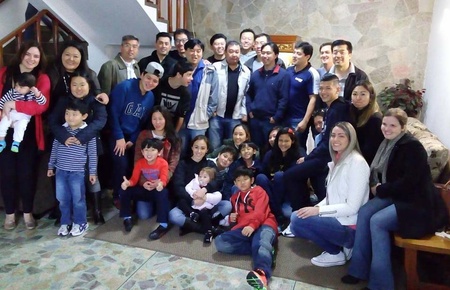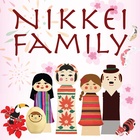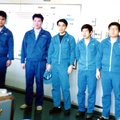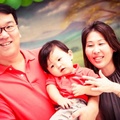In 1995, after finishing college and a one-year internship in Japan, I started working at a large multinational here in Brazil. Our lunch was served in the company cafeteria. One of the conversations during one of the lunches was about human metabolism, which is said to slow down after the age of 23. At 24 years old, I was already feeling the effects of gaining a few kilos, even though I ate less than I did as a teenager. One of my coworkers said: “To avoid gaining weight, just don’t eat everything on your plate.” Like this? Don't eat it all? After years I discovered that, unconsciously, I ate everything on my plate. Until the last grain of rice.
In the stories we hear from our Japanese immigrant ancestors, there are frequent facts about the needs they all went through, especially the lack of food. Most immigrants also arrived from poor areas of Japan, where food was not abundant. Even my father, already born in Brazil, says that many times in his youth he only had an apple for a meal.
Fortunately for me and my sisters there was never a lack of anything. But we still learned that leaving food on the plate was Mottainai . I heard this word mainly from my obaachan with whom I lived, also born in Brazil, but who had the same difficult life as the first immigrants. I believe it was no different in the homes of most Brazilian Nikkei and those from other countries that received immigrants. Many may understand Mottainai as waste, but it is something much bigger. We were unable to translate it literally into Portuguese, but Mottainai would not give the real value of things.

I believe that one of the greatest legacies we receive from our family are values. And I can include Mottainai among them. And because it was so rooted in my values, I didn't even realize I practiced it with my food, as if it were something obvious. How can we not eat everything on our plate? How can you leave food on your plate that took such a long way to reach you and with so many people going hungry?
Mottainai is perhaps not just a value passed down by our ancestors. We can consider it as a concept. And so it can be practiced by everyone. A word that has its origins in ancient Japan, when there was a lack of resources of all kinds, is still very current, as it can be applied to today's lifestyle, when we consume more than nature offers us, we waste our skills on unnecessary things and we waste our valuable time. Searching the Internet a little, we found several projects in Japan, especially in the environmental area, that use the word Mottainai to raise awareness.
I hope that my son recognizes the importance of Mottainai , both as a value and as a concept, and that other people also know its meaning. I hope that we can continue to pass on the values that we received from our ancestors from Japan, combining this with the best that our countries, where we were born and raised, offer so that we can try to be better people. So I believe we can have a better future for everyone.
© 2015 Claudio Sampei





